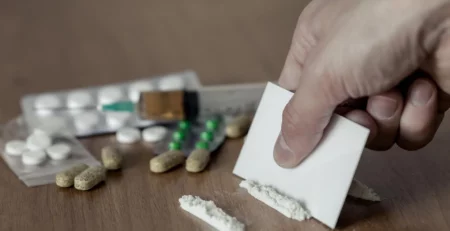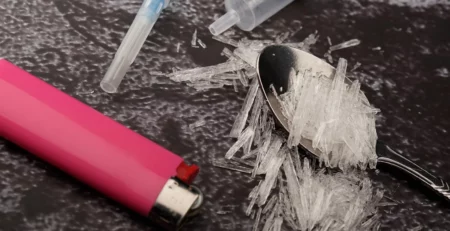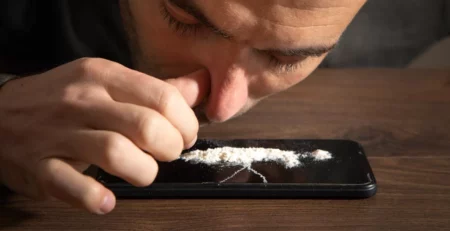Can You Force Someone to Go to Rehab in Nevada
Looking at Mandated Treatment for a Loved One in the Silver State
Drug and alcohol addiction takes a toll on a person, but it also takes a toll on the people around them. It is torture watching your loved one be consumed by drugs or alcohol. They may have weight changes, dark circles, thinning hair, or poor skin health. And, with the high rate of drug overdose across the country, you constantly worry that each time you see them will be the last.
Unfortunately, the second that you express any disapproval, most people struggling with addiction start to distance themselves from you. If you’ve found yourself in this position like I have, you’ve likely wondered, “Can you force someone to go to rehab?”
Many states have involuntary laws for substance abuse, but Nevada is not one of them. Still, your loved one may qualify for involuntary treatment if they meet other conditions, in addition to struggling with substance use disorder. There are also strategies you can use to help convince your loved one to seek addiction treatment.
Keep reading our latest blog from Icarus Behavioral Health Nevada to learn more about getting help for the struggling family member or friend in your life now!
Understanding Involuntary Commitment Laws in Nevada

Involuntary commitment laws only apply to people struggling with mental illness in Nevada. If your loved one has a documented mental illness and meets certain requirements, they can be held for 72 hours at a treatment facility.
After this initial period, you can file a petition with the court in the county they live in for a longer hold. To qualify for a hold, they must have a diminished ability to make safe decisions, practice self-control, or meet their needs as a result of their mental condition.
It’s important to understand that in Nevada, substance abuse does not qualify a person for an involuntary hold at an inpatient facility. For a person to be involuntarily committed in the Silver State, they must be at serious risk of causing harm to themselves or others. Admitted thoughts, observed behaviors, threats, and plans can be used as evidence of this harm.
Your loved one may also qualify for involuntary commitment if they are at serious risk of illness, injury, or death because they are neglecting basic needs for clothing, shelter, food, or personal safety.
Get Immediate Help For Co-Occurring Disorders – Call Now!
The Link Between Mental Health Conditions and Substance Use Disorder
Drug use in Las Vegas and across Nevada is higher than the national average. The prevalence of mental health conditions is also slightly higher. People with untreated mental health conditions or unresolved trauma are more likely to struggle with substance abuse than the general population. They often get trapped in a cycle of self-medicating symptoms.
As they start relying on their substance of choice to feel normal, their body and brain become chemically dependent.
Dual Diagnosis and Involuntary Commitment
While you likely cannot force your loved one into addiction treatment, you may be able to have them committed to receive mental health services. However, the way that involuntary commitment laws work in Nevada, it would have to be evident that the mental illness is contributing to their struggles – not just substance use disorder.
If your loved one has been heavily using drugs or alcohol, they’ll likely go through withdrawal while receiving mental health treatment. Even though involuntary rehab isn’t an option, this experience might be eye-opening for them. It can also help them get clean from alcohol or drug addiction, an important first step toward recovery.
What is the Process for Having Someone Committed to Mental Health Treatment?
In Nevada, a person suffering from mental illness can be admitted for involuntary treatment up to 72 hours after a mental health crisis. This includes weekends and holidays. A person’s parents, spouse, or adult children can file this petition. It may also be filed by a therapist, psychiatrist, social worker, police officer, or registered nurse.
With this petition, you’ll need to include evidence of a person’s mental illness. You’ll also need a statement from a doctor or psychiatrist that they are at risk of harming themselves or someone else. A hearing will be scheduled within 6 days of this petition. Here, evidence can be presented by both sides and the judge will decide whether the case meets certain criteria for involuntary commitment.
What States Allow Involuntary Commitment for Addiction?

While Nevada does not allow involuntary commitment for alcohol or drug abuse, there are several states that do. States with involuntary commitment laws include:
- Texas
- Oklahoma
- Kansas
- Mississippi
- Louisiana
- Arkansas
- Nebraska
- Missouri
- Iowa
- Hawaii
- Alaska
- Washington
- California
- Colorado
- North Dakota
- South Dakota
- Montana
- Minnesota
- Wisconsin
- Michigan
- Delaware
- Florida
- Georgia
- North Carolina
- South Carolina
- Virginia
- West Virginia
- Ohio
- Kentucky
- Indiana
- Tennessee
- Pennsylvania
- Maine
- Rhode Island
- Massachusetts
- Vermont
- Connecticut
- District of Columbia
Even though you can have a loved one sent to rehab for substance use disorder, there are still certain guidelines that must be met. These guidelines to force someone into rehab vary by state.
Get Accredited Treatment Programs at Icarus – Reach Out Now!
Can I Have My Loved One Committed in Another State?
Involuntary rehab laws vary by state and most states have some type of regulations determining whether spouses and family members can force someone to seek treatment. In Florida, for example, someone struggling with drug or alcohol use can be committed under the laws of the Baker Act or the Marchman Alcohol and Other Drug Services Act.
Even though some states have involuntary commitment laws, you cannot send your loved person to rehab there. They must meet the involuntary commitment laws of the state in which they reside.
Are Court-Mandated and Involuntary Treatment the Same?

Involuntary commitment and court-mandated rehab are not always the same, but they can be. In the case of involuntary treatment, a person is admitted to a treatment program against their will. They may be placed on a hold lasting 72 hours or longer.
However, they must be unable to make rational and informed decisions about their care for a family member to intervene and petition the courts. Involuntary commitment is sometimes referred to as court-ordered treatment, but in other cases, mandated means something different.
Court-ordered treatment may be the result of probation, parole, drug court, or other legal troubles.
In these scenarios, a judge may order treatment in the form of attending meetings, seeking inpatient or outpatient services, holding employment, and meeting other requirements. Failing to follow through with the judge’s orders may result in serving jail time for their charged offense.
Will Insurance Pay for Involuntary Rehab?
Yes, your loved one’s insurance plan should cover some or all of the costs of rehab, even if they have been committed against their will. After the Mental Health Parity and Substance Abuse Equity Act of 2008, it became mandatory for treatment for drug and alcohol abuse to be offered at the same standard of care as physical health services.
If you are worried your loved one’s insurance will not cover rehab costs, reach out to our team at Icarus. We can verify insurance over the phone, answer questions you may have, and discuss the next steps of the treatment process.
Can You Force Someone to Go to Rehab: Is Forced Rehab Effective?
You may heard the adage, “You can lead a horse to water but you cannot make them drink.” One potential issue with forcing someone into rehab is that they are not always in the right mindset to accept this help. If a person is not ready to change, they may relapse even after going through withdrawal.
They may not be motivated enough to continue the path to sobriety after leaving the facility. This is especially true for clients receiving mental health services, rather than dual-diagnosis addiction treatment.
However, there are times when involuntary commitment to alcohol or drug rehab is effective. Going through withdrawal at addiction treatment centers can be eye-opening for some. It can make the devastating effects of substance use more apparent.
What Are Some Ways to Convince Someone to Get Substance Abuse Treatment?

According to the National Institute on Drug Abuse, suffering from addiction is similar to struggling with chronic conditions like heart disease or asthma. While the condition can be managed with the right strategies, it does not go away.
This is why it is so important to encourage your loved person to seek out a treatment program that supports long-term recovery. Here are some ways you may be able to convince them.
Are Interventions Effective?
Interventions can be an effective way to convince your loved one of voluntary commitment to a treatment center. However, it’s important to use the right approach. Work with a doctor, mental health professional, addiction specialist, or other healthcare provider to help with this approach.
During an intervention, your loved one will hear from friends and family members about the effects addiction has had on their relationships, finances, employment, and physical and mental health. The goal is not to shame them, but to bring the realities of addiction into the light and encourage them to attend rehab.
It is worth noting that they will not kept without the ability to communicate during treatment, even if forced to attend, clients at Icarus Nevada are allowed cell phones during rehab programming at allotted times and with appropriate precautions in place.
Researching Options for Substance Abuse Rehab
If you look for an “addiction treatment center” in your area, you’ll likely be overwhelmed by the results. Imagine how this might look to your friend or family member who is trying to go to rehab. Research drug and alcohol rehab treatment centers without them.
Learn about what insurance is accepted, addiction intervention offered, the comfort of the facility, and whether they use evidence-based methods for treating substance use disorders.
For those in the Las Vegas area, the Icarus Behavioral Health Nevada addiction treatment center is a leading choice. We offer comfortable lodgings surrounded by the beauty of Nevada, and accept mental health clients, with or without substance abuse.
Furthermore, they’ll help your loved one come up with an individualized treatment plan and goals before suggesting a course of treatment to make rehab work for them. This often involves residential care, dual diagnosis, outpatient treatment options, and aftercare services.
Be Compassionate

Even though the “tough love” approach can work in some situations, it can also push someone away. It’s important to show compassion for what your loved one is going through. Addiction is hard to overcome. The number of people struggling despite the negative consequences of drug or alcohol use makes that clear. By being compassionate, even if your loved one isn’t ready to seek help now, they’ll know that you are a safe place to turn once they are more accepting of this help.
Up To 100% of Rehab Costs Covered By Insurance – Call Now!
Get Proven Treatment Support for Your Loved One at Icarus Nevada
Are you still unsure if you would be able to involuntarily commit your loved one? Or maybe you are trying to convince them to attend rehab, and you’d like to take a tour? Reach out and call Icarus Behavioral Health in Nevada today.
Their caring Admissions team can verify their insurance over the phone, talk about treatment options, answer your questions, and discuss the first steps of the recovery process. You don’t have to convince them alone – pick up the phone today!
References
- https://nvbh.org/involuntary-hold/
- https://www.samhsa.gov/data/sites/default/files/NSDUHMetroBriefReports/NSDUHMetroBriefReports/NSDUH-Metro-Las-Vegas.pdf
- https://nida.nih.gov/publications/drugs-brains-behavior-science-addiction/treatment-recovery
- https://www.mayoclinic.org/diseases-conditions/mental-illness/in-depth/intervention/art-20047451
- https://www.samhsa.gov/newsroom/press-announcements/20220427/hhs-new-mental-health-substance-use-disorder-benefit-resources











